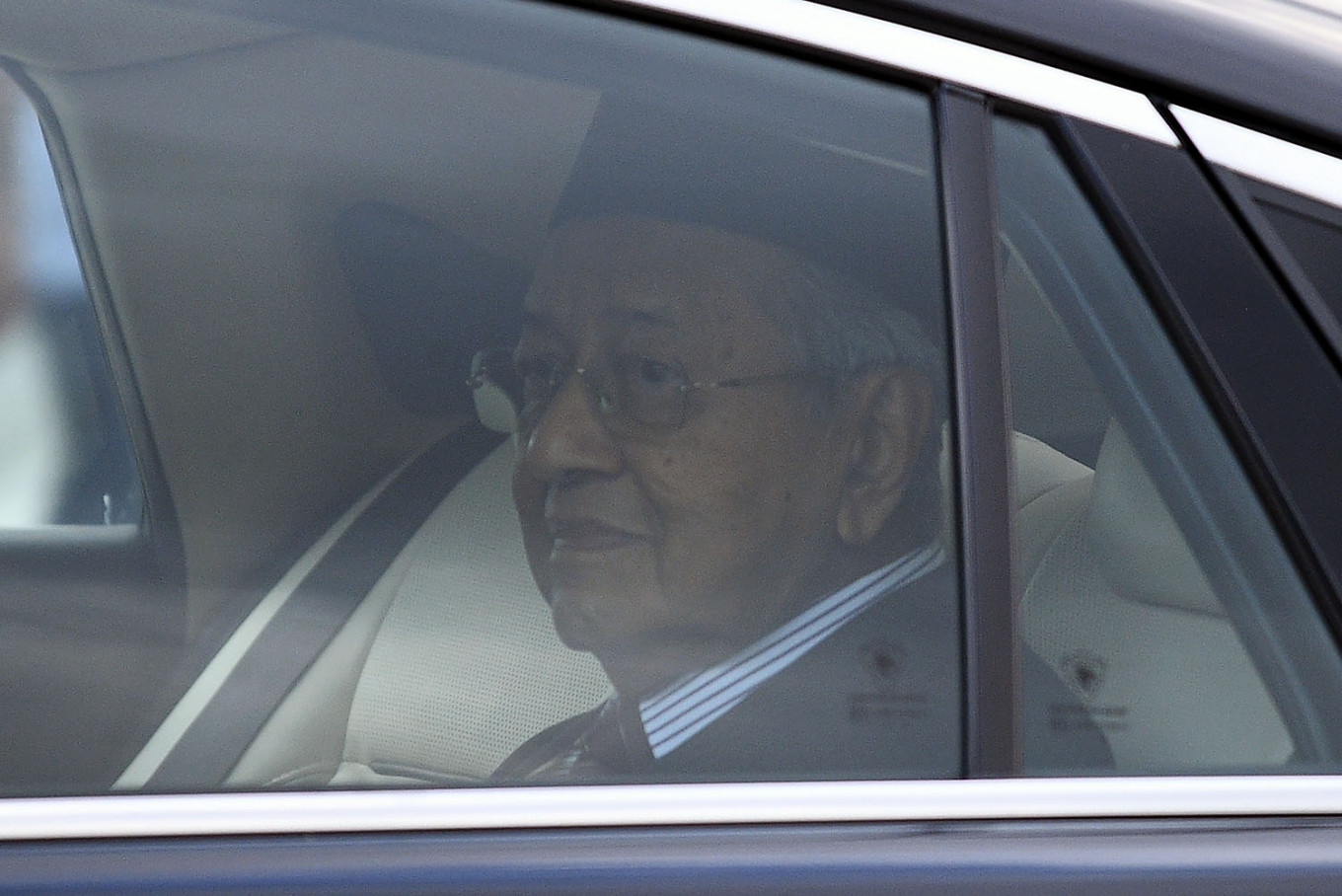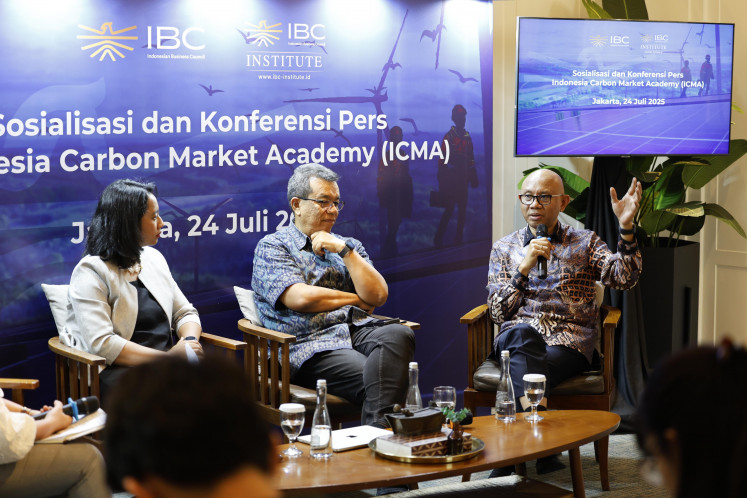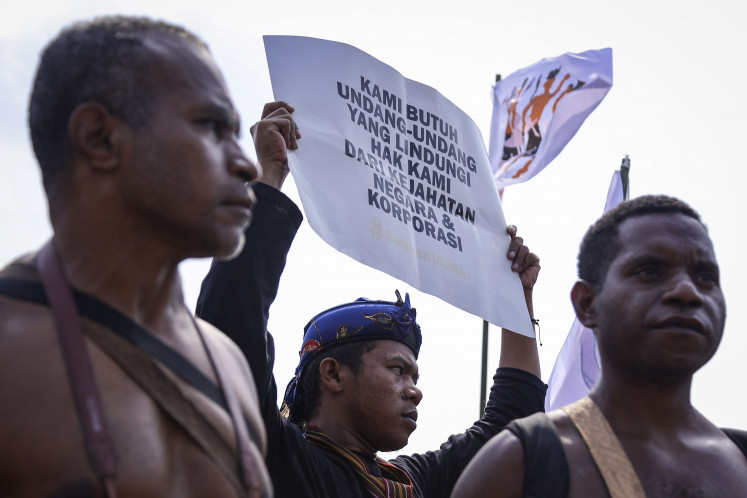Popular Reads
Top Results
Can't find what you're looking for?
View all search resultsPopular Reads
Top Results
Can't find what you're looking for?
View all search resultsDr. M strikes again
Prime Minister Mahathir Mohamad’s resignation on Monday sent shockwaves through the country’s political establishment in a seemingly calculated yet unexpected move.
Change text size
Gift Premium Articles
to Anyone
 Malaysia’s former prime minister Mahathir Mohamad looks on as he leaves the National Palace in Kuala Lumpur on February 24, 2020. - Mahathir resigned February 24 in a move analysts said appeared to be an effort to form a new coalition and block the succession of leader-in-waiting Anwar Ibrahim. (AFP/Mohd Rasfan)
Malaysia’s former prime minister Mahathir Mohamad looks on as he leaves the National Palace in Kuala Lumpur on February 24, 2020. - Mahathir resigned February 24 in a move analysts said appeared to be an effort to form a new coalition and block the succession of leader-in-waiting Anwar Ibrahim. (AFP/Mohd Rasfan)
Malaysia’s political landscape has provided surprises in the past few years.
Prime Minister Mahathir Mohamad’s resignation on Monday sent shockwaves through the country’s political establishment in a seemingly calculated yet unexpected move. Furthermore, the Malaysian United Indigenous Party (PPBM) left the ruling coalition, Pakatan Harapan (Alliance of Hope).
In 2018, Pakatan deposed the powerful Barisan Nasional (National Alliance), which governed Malaysia from independence in 1957 to the 2018 general election.
Now 94 and among Southeast Asia’s leading statesmen, “Dr. M”, as he is known, had previously said that he would transfer power after a few years as he did not intend to “rule forever”. His once-presumed successor and former opposition leader Anwar Ibrahim remains the prime minister in waiting.
The 2018 election results reflected aspirations for change among Malaysians of all races, after Barisan Nasional’s rule under Najib Razak was seen as sending the country into a deep state of corruption, which peaked with the 1MDB financial scandal.
External forces, however, have hindered the new coalition’s ability to deliver better economic conditions, improve geopolitical circumstances involving China and the United States and decrease unemployment among new graduates.
Malaysia ran the New Economic Policy until 1990, which gave affirmative action to ethnic Malays so that they could catch up to Malaysians of Chinese and Indian descent to reduce the wealth gap.
Affirmative action started in 1970 with the goal of having ethnic Malays control 30 percent of the nation’s wealth. Other Malaysians (mostly those of Chinese and Indian descent) were allotted 40 percent and foreigners the remaining 30 percent.
A similar division was introduced with politik perkauman (racial politics). Each of the country’s three major ethnic groups has its own parties; one that is progovernment and another that acts as the opposition.
Very seldom has a party in Malaysia taken a nationalist stance while embracing all ethnic groups. The Democratic Action Party (DAP) has long been perceived as a Chinese party and the antithesis of the Malaysian Chinese Association (MCA), even though the DAP is a multiracial party.
Ethnic Malays are similarly divided into several factions, ranging from the conservative Pan-Malaysian Islamic Party (PAS) to the more progressive People’s Justice Party (PKR).
The next government, whoever the leader might be, has the Herculean task of maintaining Malaysia’s economic performance not only for the sake of its citizens’ welfare but also for Indonesians, to some extent, as Malaysia is one of the top destinations for Indonesian migrant workers.
On the political front, the consensus seems to be that Malaysians support racial politics. All we can do is lend our support to whatever system our neighbor believes is the best and share our past experiences, good and bad, as lessons learned.
Malaysia and Indonesia need to work strongly together on various fronts, from crude palm oil to terrorism issues, especially when the welfare of both nations is affected.
As saudara serumpun (brothers and sisters of one root), we hope for the best for Malaysia.









